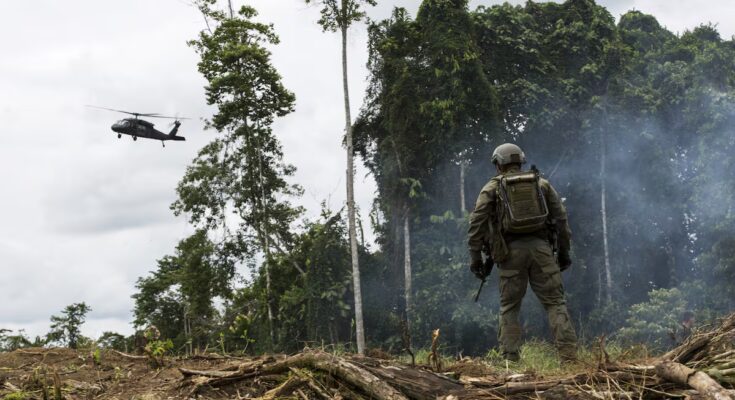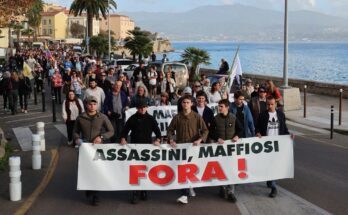I read in an article in this newspaper that among the minors killed in the Army bombing in Guaviare there was a 13-year-old girl. Her name was Caren Smith Cubillos Miraña, “originally from Puerto Santander (Norte de Santander), but raised in the municipality of La Pedrera, Amazonas”. In the call Government of Life, She and six other minors died in a bombing ordered because the illegal group that recruited them was feared to attack the soldiers. In war, the choice is between killing or being killed because it is “them or us”. Everyone has the justification that it is better for others to die, even if those others are minors. Whoever is the president today has said several times that camps where there are minors cannot be bombed. It’s one thing to be the opposition, it’s another to be the government and make life and death decisions.
I think of the difficulty of supporting principles – such as the defense of the lives of minors – in these times of fundamentalism and denial of the rights of all enemies. What gets done and what gets criticized is measured by different standards. My death makes sense, the other’s does not. My sins are minor and serve a greater purpose, those of others are condemnable.
As I reflect on how politics and war have clouded collective values, an image of a Caren I don’t know comes to mind. Maybe because he was only 13 years old, maybe because at that age he doesn’t fit into any of the categories in which the rules of war talk about fighters. The Geneva Protocol II states that minors under the age of 15 cannot be recruited, cannot participate in hostilities and must enjoy special protection. There are other international regulations and agreements that extend this ban up to 18 years of age. Caren and the other minors are considered victims even if they participate in hostilities. Caren had to be protected and died in a bombing.
I search for Caren’s name on the internet because I try to know something about her, to know something about her short life, to understand what cannot be understood: a girl forcibly recruited by an illegal group and killed in a bombing by the military forces of a state that should have protected her and didn’t. His name appears in several recent links from media and state agencies reporting the attack. They all repeat the same words: “originally from Puerto Santander (Norte de Santander), but raised in the municipality of La Pedrera, Amazonas”. About Caren we only know where she was born, where she grew up and where she died. This time at least some names appeared and among them that of this girl. Other times, many times, the dead don’t even have a name.
I would like to know her and her story, put a face to that name. When I write this nothing is known about her. I don’t know what his dreams were, his talents, his fears. I don’t know if he was the victim of other atrocious events, if he managed to fall in love, if his hormones had already shaken his life at such a turbulent age. I don’t know if he had brothers, what he liked, what his voice sounded like. I don’t know what she was playing lately before they dressed her in camouflage to become the target of a bombing. It is possible that with the days and hours we will know something more, it is also possible that we will not know and that it will remain like a line in a list that we will forget. I wonder if there is a mother who mourns her and who must have cried when they took her away.
I think of other girls like her, recruited, forced, mistreated, waiting to die in war while on the microphones those who ordered the death justify having given the order to bomb a camp in which there were minors, including a 13 year old girl. And many of those who today condemn this attack and invite debate have justified other bombings on other camps where other children have died, because if the corpses are useful for anything, it is for politics. War is profitable, pain is viral, compassion is rather low.
Greater caution must be used if the presence of minors in hostilities is known, international humanitarian law says, that they must be protected, that all groups in conflict are obliged to do so. That they can’t recruit them and yet they recruit them because criminals are criminals and the laws don’t apply to them. That the rules of IHL are violated by the State has another price because if the salt is corrupted we are lost. Legitimate forces must always act legitimately and with extreme caution if minors are present in the conflict. It doesn’t matter that war is war and that it’s about killing or being killed, “that’s how combat is” and that “a child with a gun is a soldier who does harm” as those who know anything about war maintain.
Others say that perhaps there was some alternative in combat tactics to avoid a bombing. That the soldiers’ lives were protected, they argue. And this is motivated because we must also protect these 18 or 19 year olds who put their lives in a war that is not theirs and which is taken advantage of by those who decide on their life and death, far away from the battlefield. All war is absurd. Failing to complete it after so many years is the greatest collective failure of a country that has many other failures to its credit. That children are dying in this war is a shame and there is no way to justify it. Minors are not recruited, minors are not bombed. Whatever politicians and experts in military tactics and strategy say, nothing justifies Caren’s death. Nothing.



